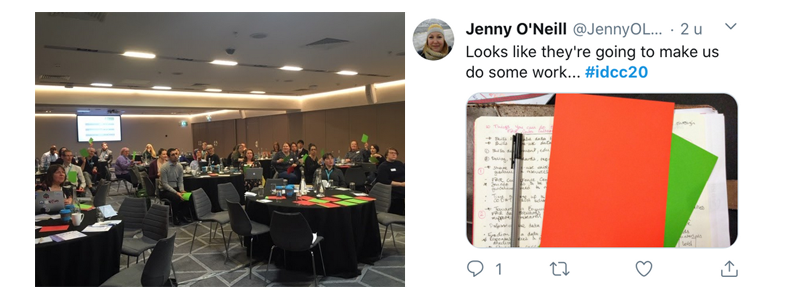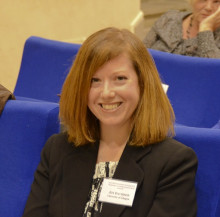As part of the 15th International Digital Curation Conference (IDCC), FAIRsFAIR ran a half day workshop to share practical suggestions on how to support a FAIR data culture. The fully booked session took place on the morning of February 17, 2020 at Croke Park in Dublin, Ireland.
The workshop provided an opportunity for FAIRsFAIR to share some of our emerging recommendations for fostering a FAIR data culture in relation to standards and technical interoperability, policy development and harmonisation, as well as data stewardship skills and formal education. We also benefited from several lightning talks from participants, who shared details on other current activities and highlighted areas where there is great potential for cooperation and collaboration.

While the title of the workshop suggested we would share ten things to support a FAIR data culture, we ended up identifying quite a few more! Below, we share a list of some of the ‘things’ we collectively identified. Thanks to @JennyOLibrarian for capturing and tweeting most of these on the day!
- Share and reuse existing FAIR training, guidance and resources
- Make shared resources easier to find and assess (e.g., target audience, level)
- Professionalise the data steward function, with a focus on FAIR data
- Acknowledge and endorse formal data stewardship roles/profiles/competences
- Provide training for both researchers and data stewards
- Support emergence of skilled researchers and data stewards through curriculum development
- Train researchers on the value of data description (metadata) and provide support to help ensure data are ‘FAIR enough’
- Use the development of metadata descriptions as an opportunity to engage with researchers about RDM
- Provide metadata as RDF
- Use semantic artefacts where they exist
- Integrate semantic artifacts into data workflows
- Support machine readability but don’t neglect human readability
- Reuse community standards and FAIR ontologies from public registries
- Support the development of workflows that enhance data quality
- Help researchers to find and use certified repositories for data deposit
- Improve the capacity for repositories to progress towards certification and FAIR
- Avoid binary metrics (e.g., pass/fail) when assessing FAIRness of data - judgements are not that straightforward
- Assess FAIRness of software too
- Contribute to ongoing elaboration of CoreTrustSeal
- Enhance your data policy to better align with the FAIR principles - explicitly or implicitly
- Engage data protection and legal teams in supporting institutional RDM workflows
- Contextualise FAIR within the wider landscape - e.g., in relation to Research Integrity and Open Science
- Adopt a more structured approach to describing policies in support of future machine readability
Thanks to FAIRsFAIR colleagues for presenting on the work emerging through the various work packages and to those who provided lightning talks: Mijke Jetten on sharing current activity in the Netherlands supported by ZonMW to professionalise data stewardship; Joao Castro on a pilot to help engage researchers in RDM through metadata descriptions; and Beyza Yaman for sharing work to develop a tool to assess the quality and FAIRness of geospatial linked data. Lots of inspiring activities that we can learn from!
One of the recommendations coming out of the workshop that we will explore further is the possible establishment of a shared FAIR Training Community in Zenodo to support a more sustainable way to share and reuse FAIR related training materials. Participants raised the fact that it can be hard to tell whether the training materials you find are what you need (e.g., are they targeted at a specific community of practice or level of knowledge?). As such, improving the cataloguing of training resources is one area we are hoping to progress collaboratively after the workshop as we continue work on establishing a FAIR Competence Centre.
Thanks to everyone who took part and shared their current activities and views. We are looking forward to continuing our discussions and picking up on some of the recommendations with you in the months ahead!
The detailed agenda and all of the workshop presentations are available from https://drive.google.com/drive/folders/1nOhG6vFqyuRA6qfcjyNjCH3kJSuyw-Ct

